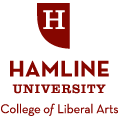Date of Award
Spring 2019
Degree Type
Honors Project
School
College of Liberal Arts
First Advisor
Leondra Hanson, J.D.
Second Advisor
Jennifer Will, J.D.
Abstract
There are few legal avenues for low-income and other marginalized groups in the United States to seek civil justice. A lack of legal assistance in civil issues can be detrimental to a person’s health and wellbeing. Given this reality, the legal profession must broaden its capacity to serve these needs, and one path is to embrace the aid of paralegals. In 2016, the legal community of Minnesota had conversations about whether the state should provide limited licenses to paralegals. To study models from across the country, the Minnesota State Bar Association (MSBA) formed the Alternative Legal Models Task Force. In 2017, the Task Force released its recommendations on how Minnesota should address paralegal licensure. When the report was introduced for MSBA adoption, reservations remained, and the Board of Governors decided, at least for the time being, not to pursue developing a model rule. This decision by the MSBA leaves open the question of how paralegals could help close the civil justice gap in Minnesota. Minnesota should license paralegals to practice law in a limited scope to diversify legal service delivery. To illustrate, this article provides an overview of Minnesota’s historical attempts to mitigate the justice gap, examines ways paralegals have been licensed in other jurisdictions, and ultimately affirms the recommendation of the Alternative Legal Models Task Force that Minnesota should license paralegals to provide a limited scope of legal services to complement access to justice efforts, similar to nurse practitioners in the medical profession. To propel the legal profession forward, paralegal practitioners would augment existing services and bridge the justice gap across a growing divide.
Recommended Citation
Suddick, Conner, "Licensing Paralegals to Practice Law: A Path Toward Bridging the Justice Gap in Minnesota" (2019). Departmental Honors Projects. 80.
https://digitalcommons.hamline.edu/dhp/80
dc_type
text
dc_publisher
DigitalCommons@Hamline
dc_format
application/pdf
dc_source
Departmental Honors Projects
Included in
Civil Law Commons, Civil Procedure Commons, Courts Commons, Judges Commons, Jurisdiction Commons, Law and Politics Commons, Law and Society Commons, Legal Education Commons, Legal Ethics and Professional Responsibility Commons, Legal History Commons, Public Law and Legal Theory Commons, State and Local Government Law Commons

